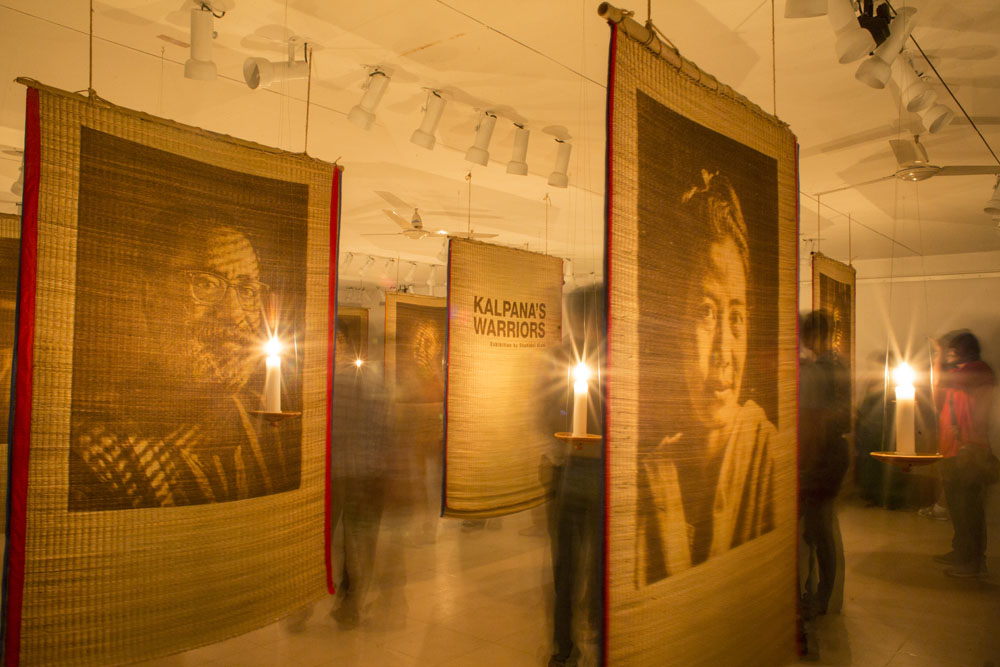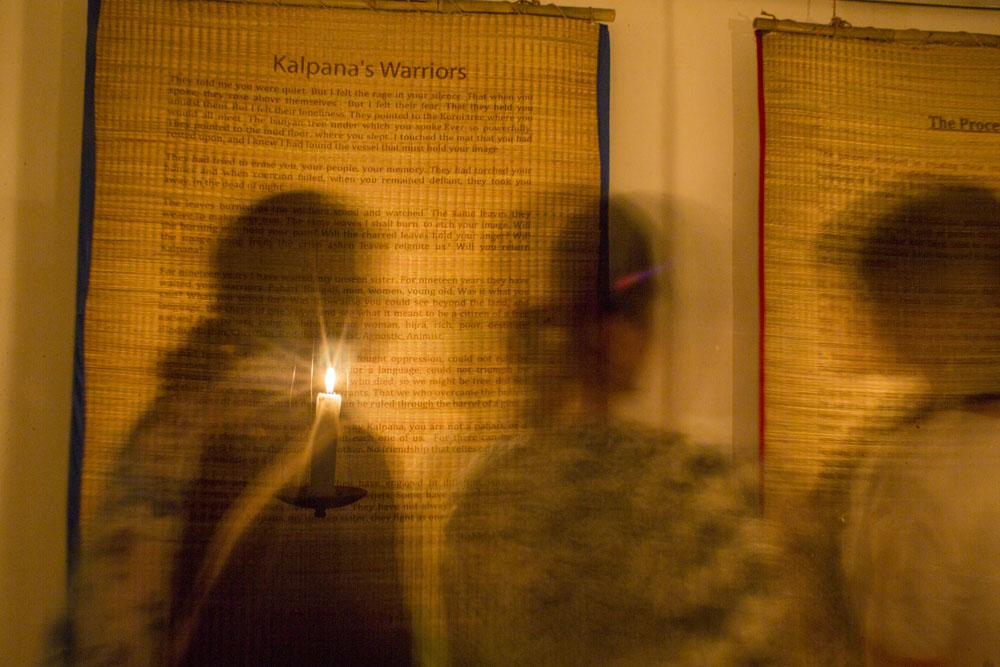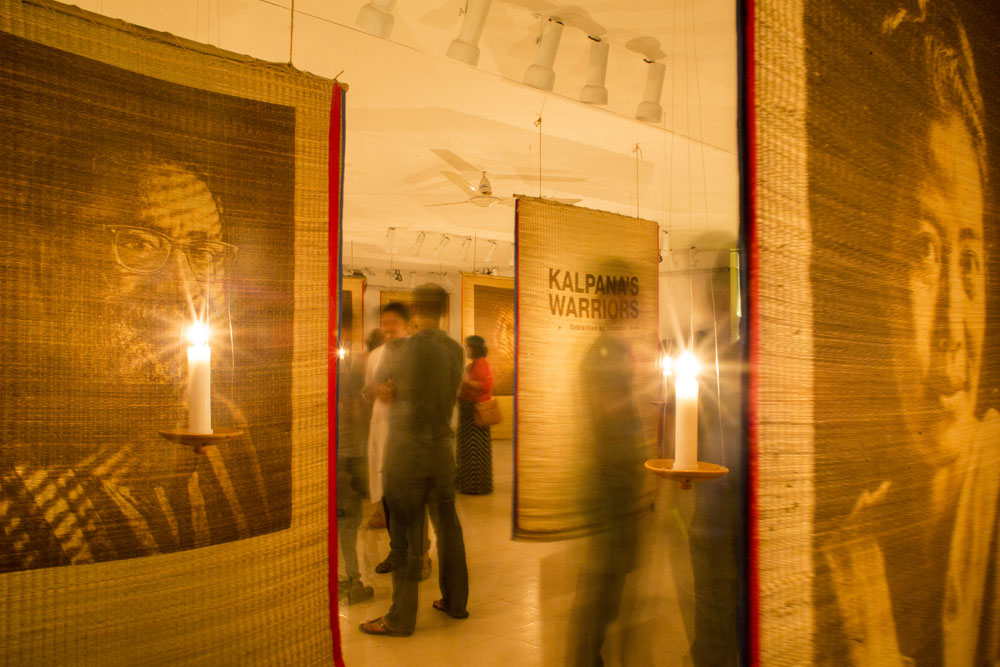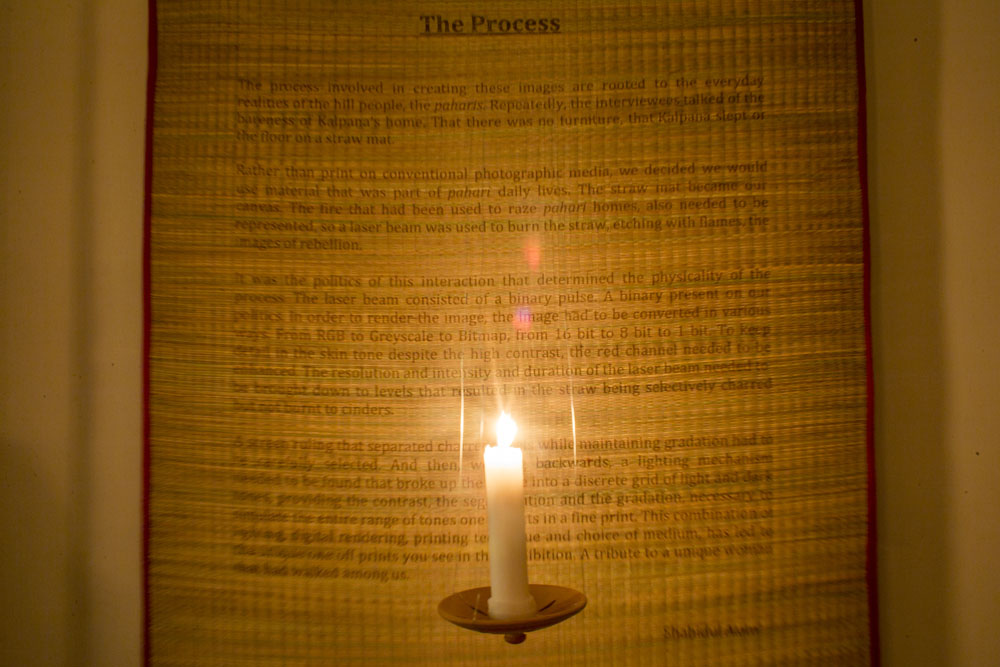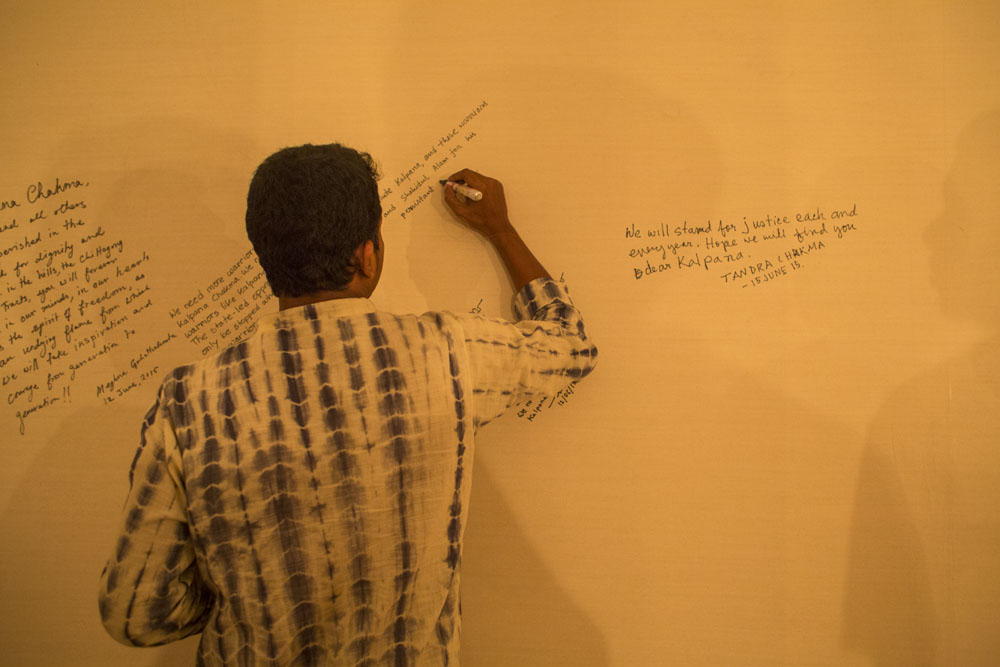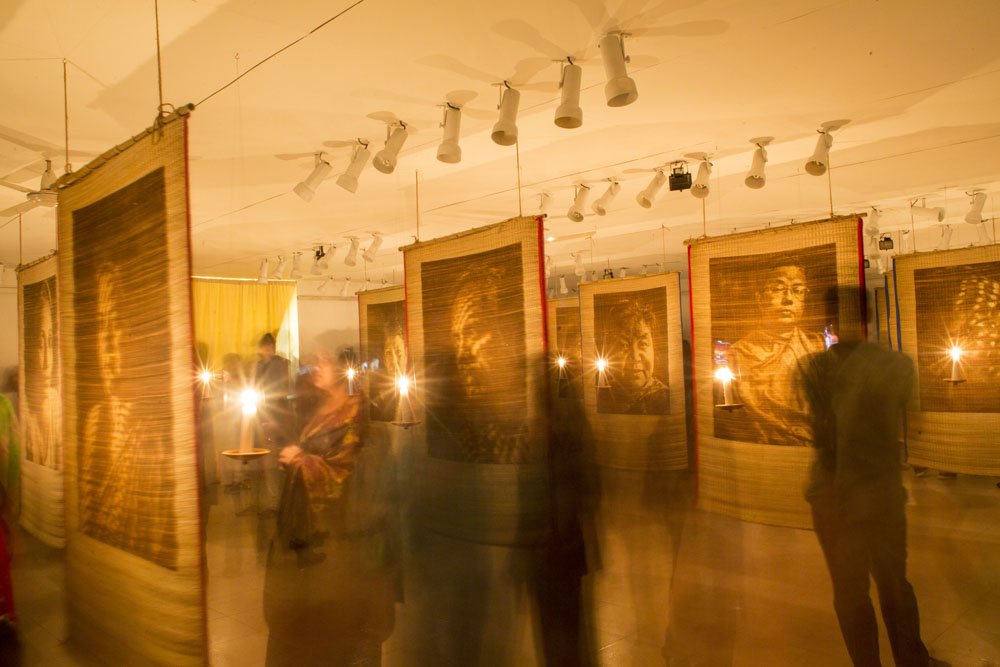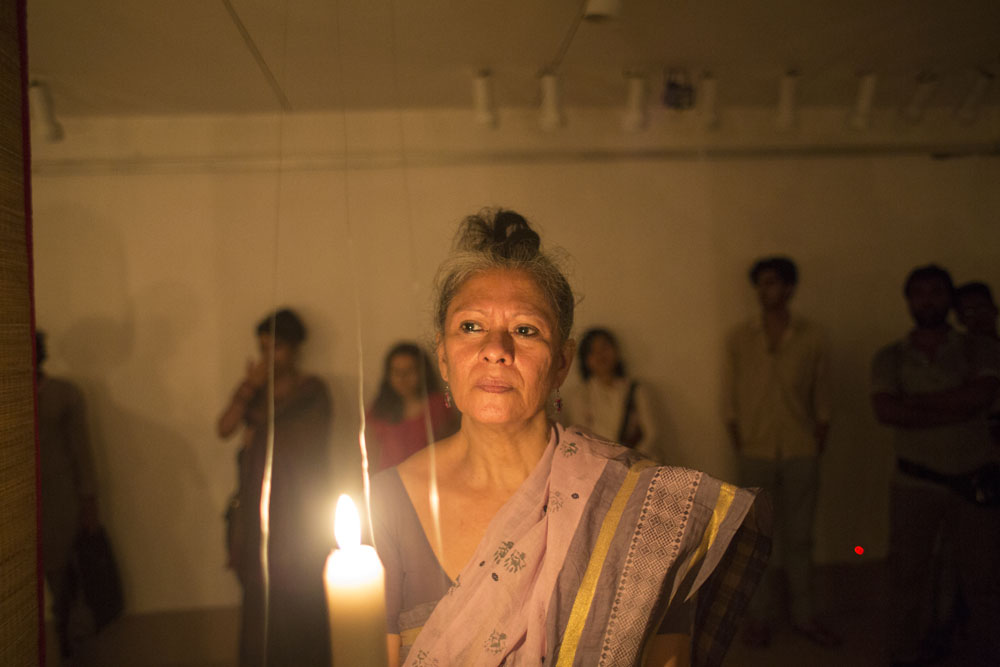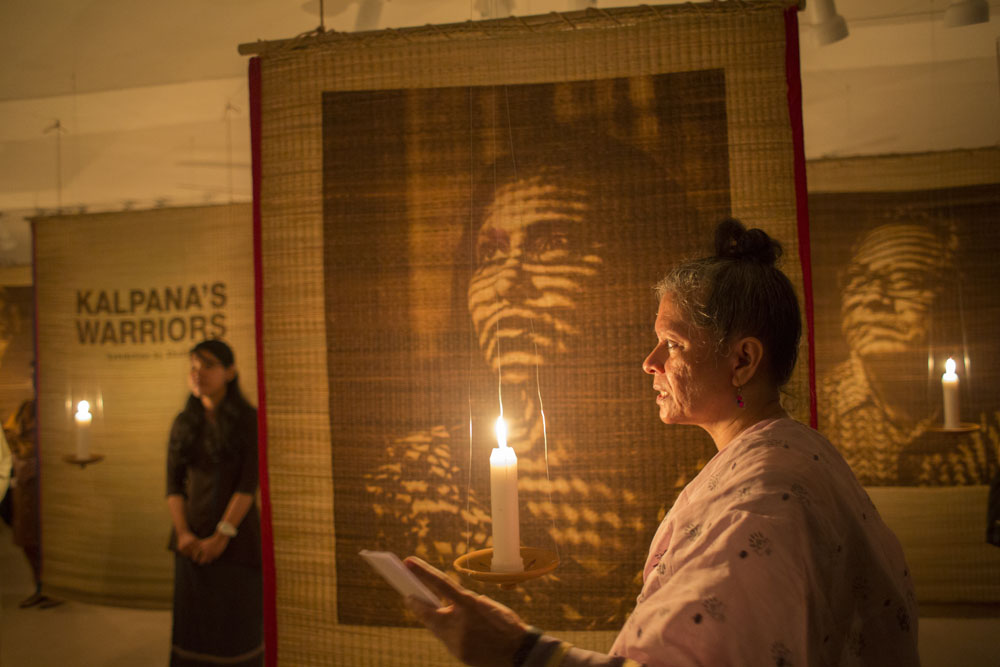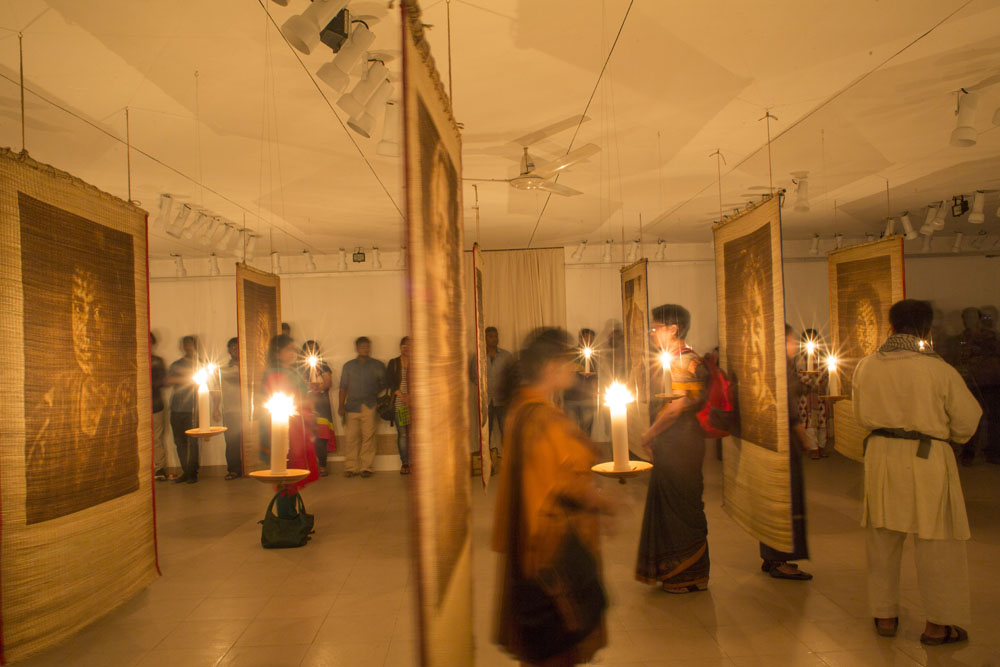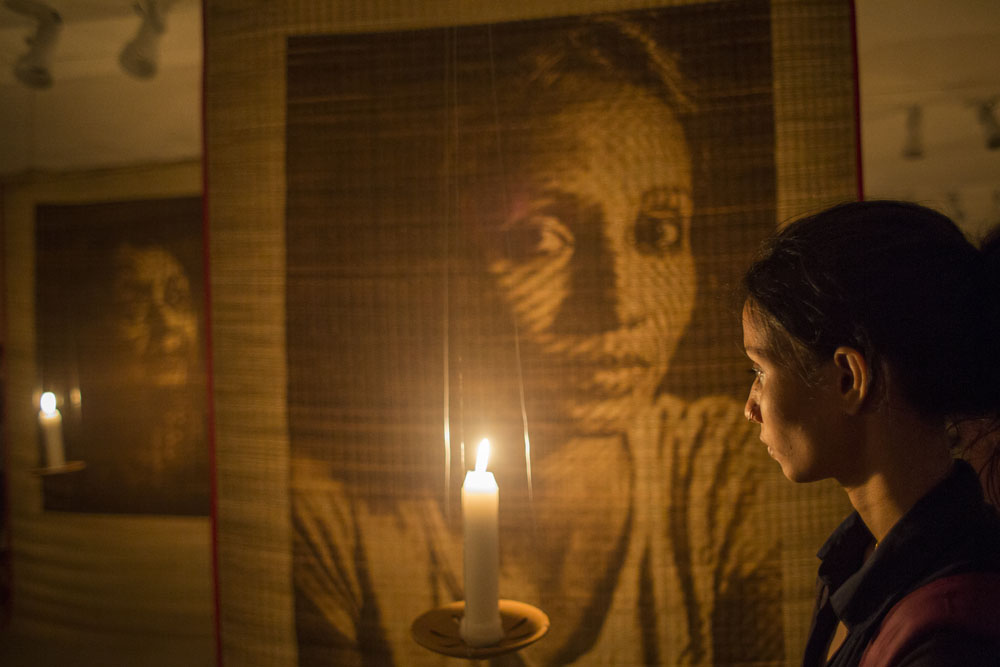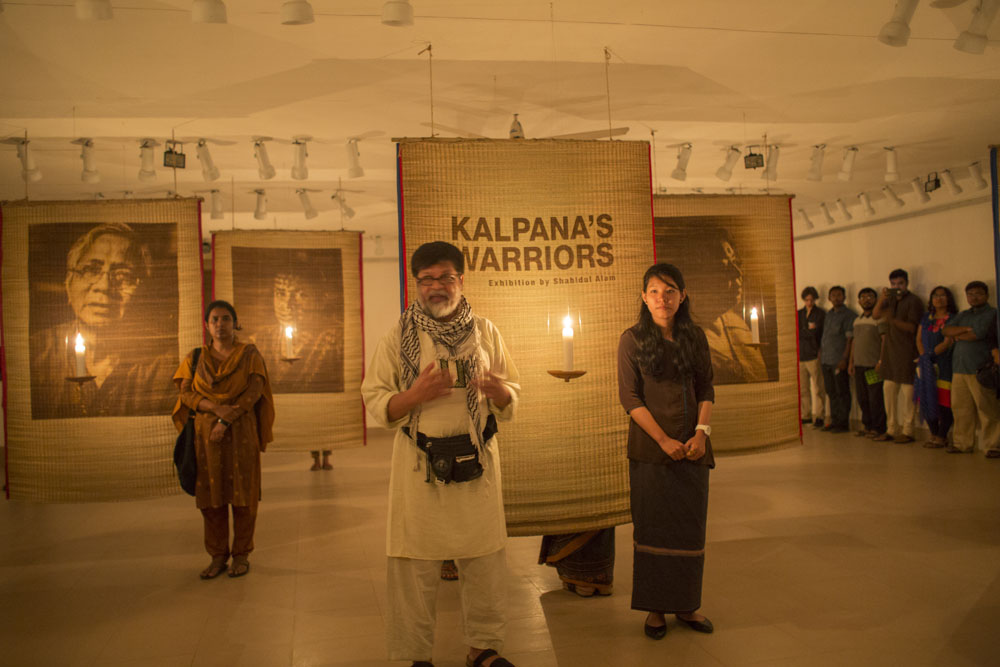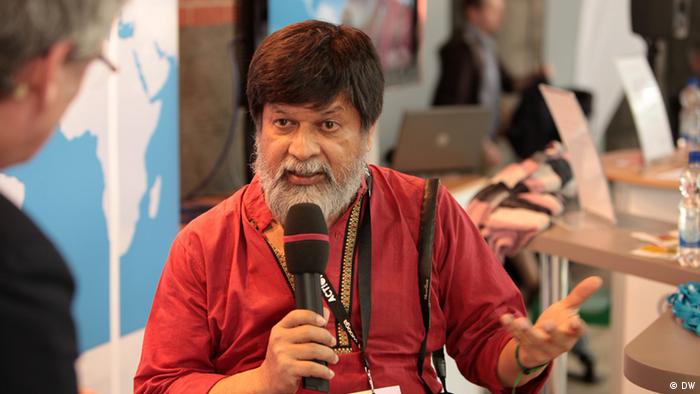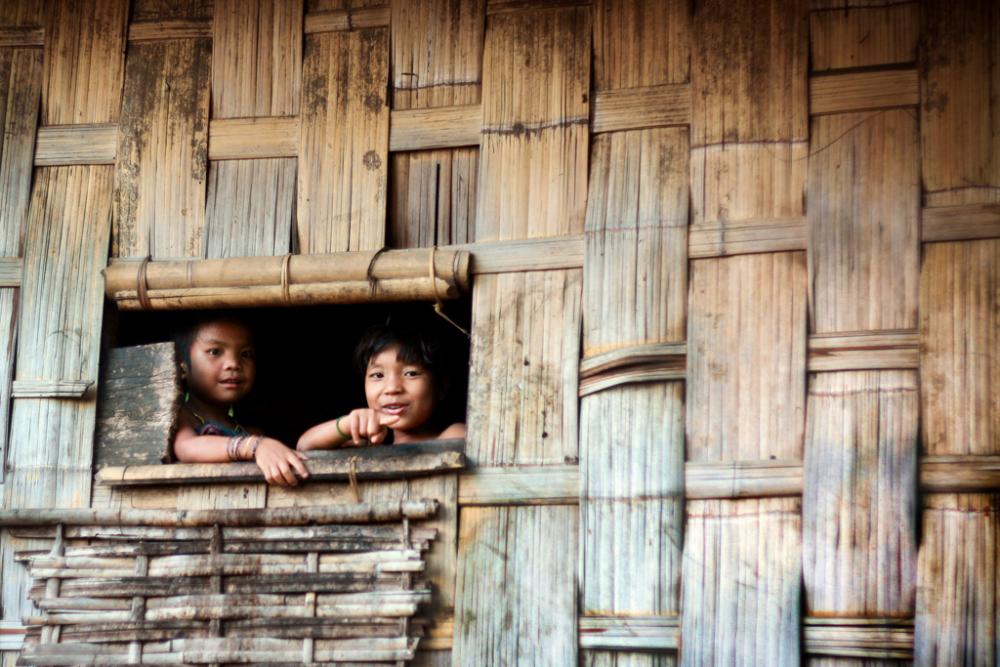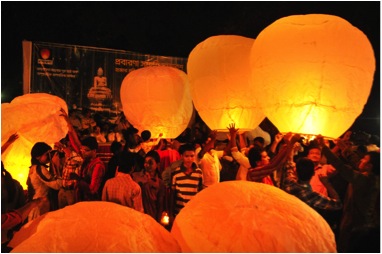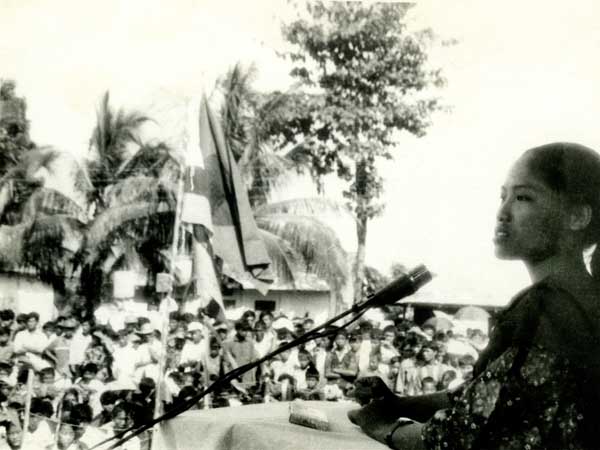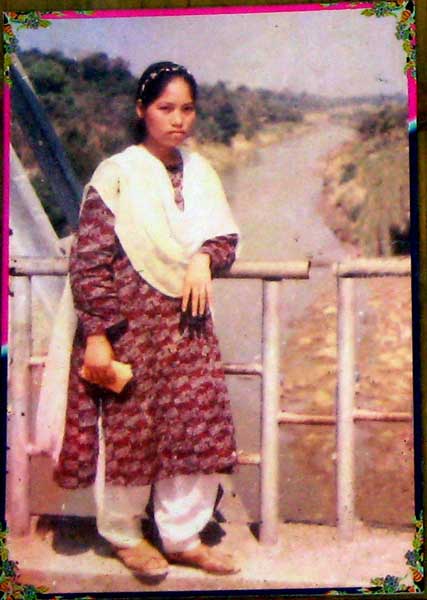`Warring factions’ in the CHT
By Rahnuma Ahmed
In homage to Kalpana Chakma, who is marginal to the Bengali-dominated women’s movement in Bangladesh, which, regardless of its internal differences, is seamlessly united in its collective refusal to critically engage with the issues of ethnic domination and Bengali nationalism.
Also, to critically engage with the issue of imperial politics.
Kalpana was a leader of the Hill Women’s Federation. She was abducted, allegedly by a military officer, who was accompanied by other Bengalis, on the night of 11 June 1996. She was then a college student, aged 20-21.
Sheikh Hasina’s Awami League-led government (1996-2001) was forced to set up a committee to investigate her disappearance. It submitted a report which has never been made public. Sources close to the military, and this includes a Bangladeshi human rights organisation, insisted that she had eloped, with the very officer whom she had publicly accused of watching over and harassing her, a few days earlier. This story blended into another which was made to do the rounds: Kalpana had been seen in Tripura (India).
Thirteen years later, Kalpana still remains missing. She still remains marginal?as do all jumma women as jummas?to the women’s movement in Bangladesh which remains closely wedded to the dominant Bengali paradigm that unites the ruling and opposition parties, that is enshrined not only in the Constitution, but also in the hearts and minds of the state’s functionaries be they bureaucrats, petty officials, members of the law-enforcing agencies, or the military. `We won the nation, it is ours’ just about sums up the Bengali perspective on liberation, one that is historically inaccurate given the sacrifices of hill peoples and other ethnic peoples during 1971. An inaccuracy that does not detract the nation’s intellectuals, its poets and novelists, teachers and writers, playwrights and journalists from excluding `those’ ethnic others from the stories of courage which they weave and re-weave every December, every February and March, to connect us, to our collective past.
Some Bengali women however, working in small groups and clusters, or, as individuals, also belonging to the women’s movement, have attempted, over the years, to re-imagine a nation-state that is inclusionary. In other words, to conceptually dismantle the dominant Bengali/ nationalist paradigm. To include Bangladesh’s ethnic `others,’ especially, the jummas of CHT, whose lives and cultures have been disrupted most violently, a disruption that feeds off the dominant Bengali/nationalist paradigm, that employs a clever line of reasoning (`If someone from Noakhali can settle in Rangpur, why can’t he go and live and work in the CHT? It’s one country, after all’) to cover-up for a concerted military campaign of occupation (killing paharis, settling Bengali civilians, land-grabbing etc) for over two and a half decades. These women attempted to connect the lives of Bengali women to pahari women by drawing on the shared experiences of both groups of women: living under military occupation (1971 for Bengali women, post-1975 for jumma women), being subjected to sexual harassment, and to rape. It was a time when Bengali feminist history-writing of ekattur was just beginning. When Bengali women were seeking to explore the meanings of shadhinota for the women of this land, when they sought to go beyond the Bengali masculinist inability to engage with women’s experiences of rape, and its trauma (beyond uttering platitudes. Which, they still do). Besides feminism, these women also drew on the ideas which symbolised the political spirit of that time?the movement for democracy against Ershad, the military dictator. These ideas, and the spirit in which it was embodied, had a long history. They had been nurtured when the people of East Pakistan had taken to the streets to protest against Ayub’s rule. Against Yahya’s government. Against all military regimes, everywhere.
But the world has changed since.
The Failure of Bengali Intellectuals
`Like the Shahid Minar, the Bangla Academy too, is one of the symbols of the language movement.’ I agree. Absolutely, I said.
I was one of the discussants on Manzur-e-Mowla’s paper, `Bangla Academy: Bhobisshote Jemon Dekhte Chai’ (Bangla Academy: As one wishes to see it in future), at a programme which was part of Bangla Academy’s month long? celebrations commemorating the language movement. It was the 26th of February this year.
What I had forgotten to add was that, at the other symbol of the language movement this year, i.e., at the Shahid Minar, at exactly the same time, no language movement celebrations were taking place. Instead, protestors?both Bengalis and Jummas, but also, other Bangladeshis too?had gathered to condemn the recurring incidents of ethnic violence in Baghaicchari, (Rangamati), and in Mohajonpara, Milanpur, Madhupur, Shatbaiyapara (Khagracchari) in February this year. I did not forget to add however, this year’s Ekushey February was reddened with pahari blood. It shames me.
The founders of Bangla Academy, Manzur-e-Mowla pointed out in his paper, had envisioned it as a research institute. This was one of the other sentences that I picked out, saying that I wanted to tease out its implications for me. By research I understand the production of new knowledge, but also, new ways of seeing that which one assumes to be already known. Both kinds of knowledge is generated by the efforts of researchers and writers, by the activities of intellectuals. The chiefly two-party political system which Bangladesh has come to enjoy since the overthrow of president Ershad, extends to the production of knowledge too. This is most unfortunate. The country may be independent but its intellectuals aren’t, the intellectuals either belong to the BNP, or to the AL, they frame what they think, what they say according to the dictates of the party that they belong to. In his presentation Manzur-e-Mowla had mentioned that the Fellows of Bangla Academy should not be those who had been opposed to the independence of Bangladesh. I fully agree, I would only like to push his observation a bit further. The Fellows of Bangla Academy should be truly independent, they should not be durbar intellectuals who bow and scrape before politicians, whose thinking follows the party political line.
I had said, I think that when we speak of these matters we should also take the help of theoretical discussions, such as, let’s say? the ideas of Edward Said who had said, there is an urgent need to keep two things separate, on the one hand, the practice and function of the intellectual, and on the other, politics. Combining intellectual practice and functions with political ambitions is dangerous. It is deadly. I added, and I think we can also benefit from Noam Chomsky’s theoretical ideas, to do with manufacturing consent. I think we should keep these in our head when we speak of the kind of Bangla Academy that we would like to see in future, so that we can examine and analyse the role of intellectuals here, also, to be able to ask intellectuals how they see their own roles, whether they see their own function as manufacturing consent for the rulers. What if this leads to betraying the dreams and aspirations of the common people? Surely, it is up to the intellectuals to caution people, and vested quarters against pocketing the independence struggle for corporate gains? Against turning the language movement into a purely Bengali event? Yes, we had fought for our mother tongue, and yes, it has achieved international recognition, but that is because people the world over are attached to their own mother tongue, and it is these attachment, these feelings that have led them to sympathise with us. That is why 21 February has won international recognition. But we must ask ourselves whether we have learnt to respect the spirit of the language movement, or whether the language movement, Bangla bhasha, and Bangali nationhood, which were once rallying cries against oppression, have become tools of oppression themselves. When the Shaotals of Bangladesh sing ora amar mukher bhasha kaira nite chaey (they want to snatch away our mother tongue), they mean `us’ Bengalis. Surely that is a matter of shame?
When Manzur-e-Mowla says, `Bangla Academy Bangladesher shob manusher protishthan,’ I wish I could agree with him. But it’s not true. It belongs only to the Bengalis, not to all. Not to Bangladeshis.
Later I caught myself thinking, but the Shahid Minar is. After all, that is where people had gathered to protest at the injustices against those who were left out of the national dream.
The challenges that lie ahead of Bangla Academy are greater. It remains to be seen whether Bengali intellectuals will rise up to meet the challenge.
`Warring factions,’ and imperial politics
I had written above, But the world has changed since.
The Chittagong Hill Tracts is often spoken of as a zone of ethnic conflict, with different warring factions:
– the Bangladesh government (led by whichever party happens to be in power)
– the Bangladesh military
– PCJSS (Parbotto Chottogram Jana Shanghati Samiti)
– UPDF (United Peoples Democratic Front)
– the Bengali settlers
conflicts which prevent the furthering of development agendas which will benefit all, especially its older inhabitants, the jummas. Which will assist in securing human rights for all. Will promote harmony, peace and justice. On the face of it, there is nothing with which any one in their right minds would disagree.
But what I find disconcerting is the inability to raise equally searching questions about those who represent CHT and its politics in such a manner. I was reading the European Union’s press statement regarding the recent incidents in the CHT and trying to remember whether I had seen them issue any statement about Guantanamo. Or Abu Ghuraib. Did they? Had they? Instead, if I remember correctly, most of these European nations had joined the US in the invasion of Afghanistan and Iraq, had opposed the will of their own people through doing so, hadn’t they?
But then, all the more reason, I cannot help but think, to put our own house in order. A Bangla Academy for all, a nation for all. And, this being the month of March, Bengali intellectuals could begin by re-writing their nationalist narratives. Making them inclusionary.
Published in New Age 8 March 2010


